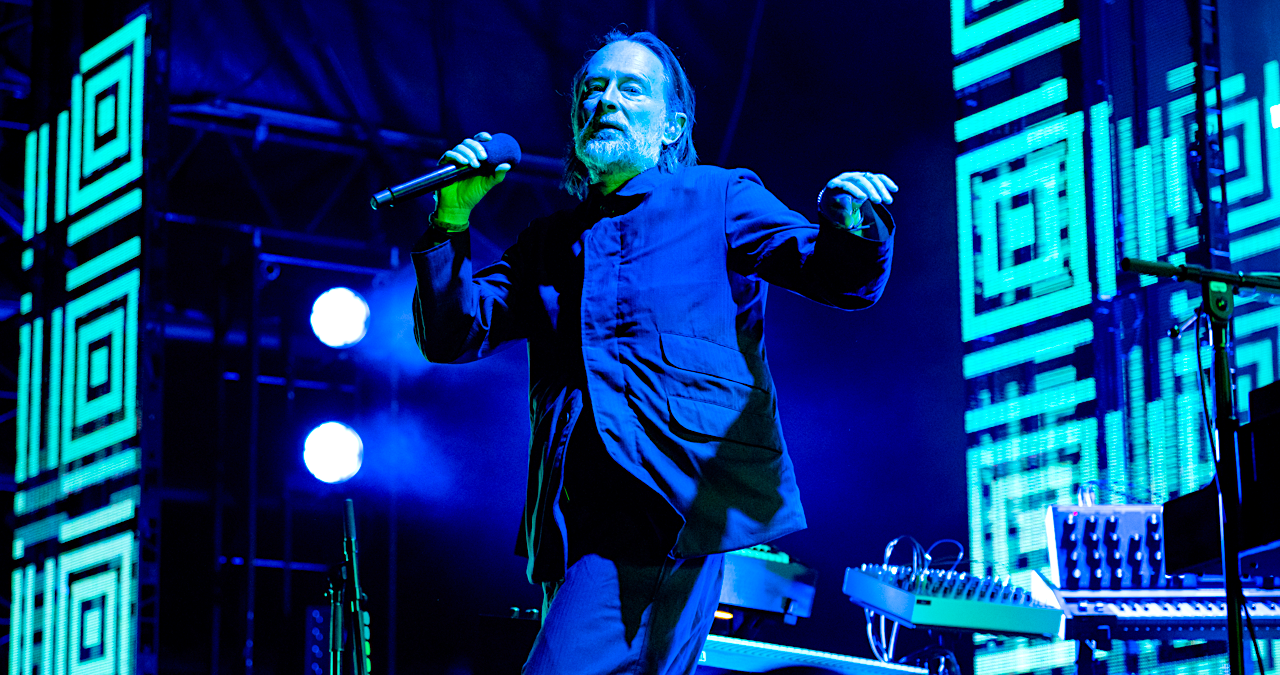"It’s a weird kind of tech-bro nightmare future... the economic structure is morally wrong": Thom Yorke says AI steals from artists and devalues humanity
"Is AI capable of genuine original creative thought? I have yet to see that," says the Radiohead frontman

Thom Yorke has shared his thoughts on AI's impact on the creative industries in a recent interview with Electronic Sound surrounding the release of Tall Tales, a collaborative project with electronic artist Mark Pritchard.
Issuing a pointed critique of generative AI, the Radiohead frontman says that he believes we are entering a "weird kind of wanky, tech-bro nightmare future" in which musicians, writers, artists and creatives of all kinds are being stolen from to enable AI to create "pallid facsimiles" of their original work. "It seems this is what the tech industry does best," he adds. "A devaluing of the rest of humanity other than themselves, hidden behind tech."
"As far as I can tell in music and art and all creative industries, AI is so far only able to ‘create’ variations on genuine human artistic expression, and those are obvious," Yorke continues.
"The economic structure is morally wrong… the human work used by AI to fake its creativity is not being acknowledged"
"Is AI capable of genuine original creative thought? I have yet to see that. It analyses and steals and builds iterations without acknowledging the original human work it analysed. It creates pallid facsimiles, which is useful in the same way auto-accompaniment is useful, or a screensaver of a beautiful natural landscape in a billionaire’s bunker is."
"But the economic structure is morally wrong… the human work used by AI to fake its creativity is not being acknowledged," Yorke concludes.
While Yorke doesn't specify which companies or products he takes issue with, it's likely that he has in mind AI-powered music generators such as Suno and Udio, which make use of models trained on thousands of copyrighted songs.
Both companies have claimed this practice is protected under the "fair use" doctrine, but are currently embroiled in a legal battle with the RIAA, an organization that represents the "big three" major record labels, Universal Music Group, Warner Music Group and Sony Music Entertainment. Bloomberg reported yesterday that both parties are currently considering a settlement deal that would involve labels licensing their work to Suno and Udio.
Want all the hottest music and gear news, reviews, deals, features and more, direct to your inbox? Sign up here.

Late last year, Yorke added his signature to an open letter demanding that tech companies cease training generative AI models on unlicensed creative works, describing this as a "major, unjust threat" to the livelihoods of their creators. ABBA's Björn Ulvaeus, composer Max Richter and actor Julianne Moore also backed the statement, along with 11,500 others.
In the same interview, multidisciplinary artist Jonathan Zawada discusses making use of generative AI in the production of a feature-length film that accompanied the release of Tall Tales. (Zawada has since told The Verge that AI was only employed to create a handful of minor details, and that he used publicly available, locally installed image generation models, as opposed to Midjourney or DALL-E.)
"I worked with AI tools in the production of some of this material and also in a variety of ways for a very long time now," Zawada told Electronic Sound. "It has been a big concern to me, and a worry. My perspective is that it’s never been quite as simple for me to completely denounce it, or to celebrate it either."
Read our interview with Mark Pritchard about the making of Tall Tales.

I'm MusicRadar's Tech Editor, working across everything from product news and gear-focused features to artist interviews and tech tutorials. I love electronic music and I'm perpetually fascinated by the tools we use to make it.
You must confirm your public display name before commenting
Please logout and then login again, you will then be prompted to enter your display name.